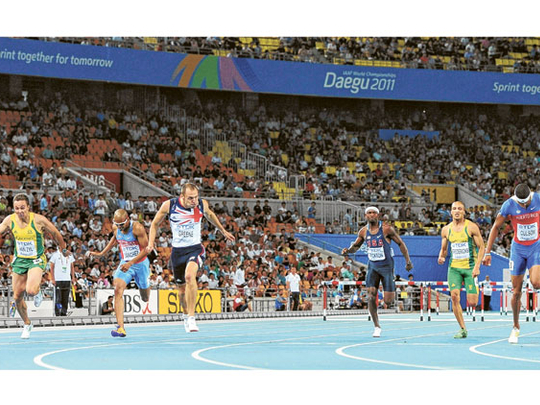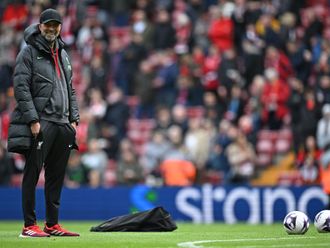
London: Bath is a pretty place, but David Greene admits there is part of him that hates it there.
For two years he has been training on Claverton Down, the tallest of the seven hills that surround the city.
Up there at the Bath University campus the wind whips in from the Bristol Channel and the rain comes in sideways, in sheets. That is where Greene sweats and strains through session after session, building his stamina and honing his techniques, while his great, gruff coach, Malcolm Arnold, looks on.
Greene's gold was the 66th major medal of Arnold's career, so he knows a thing or two about winning. He has a simple formula. No secrets, no gimmicks.
"Winning," says Arnold, "means you are willing to go longer, work harder and give more than anyone else."
And that is what Greene has been doing since he moved away from the Welsh valleys. "My confidence, it is not unfounded," Greene says. "It comes from knowing I've done the hard work before I get here."
There are times, lots of them, when he wonders why he does it. Now he knows the answer. It is for moments like this: the world championship final, 100 metres and two hurdles to go.
To his right is Felix Sanchez, two-times world champion and an Olympic gold medallist. One lane beyond Sanchez was the South African LJ van Zyl, who has run the four fastest times in the world this year. To Greene's left was Bershawn Jackson, world champion in 2005, and a way away inside him in lane one was Angelo Taylor, double Olympic champion. Out in front of them all was Javier Culson, the Puerto Rican who was a silver medallist at Berlin in 2009.
All five men have run quicker than Greene this year. But, as he said, "after three races in four days this was not about fast times".
It was the slowest final in the history of the world championships. But his time of 48.26sec does not bother him. "I don't care about times. It is more about medals."
This final was not about who was fastest, but who was best under pressure.
The athletes were made to wait for 12 long minutes between coming out on to the track and starting the race, because of the two faulty starts.
Sluggish start
Greene says that was why he started slowly. "I had such a sluggish start in the first half of the race. I realised when I got to 250 metres that I was behind and so I had to get my arse into gear."
Jackson had responded in the opposite way, and blasted through the first 100 metres. It was the first of many mistakes made by Greene's competitors. Jackson clipped two hurdles down the back straight and was burned out by the time he rounded the bend.
Everyone else was chasing Culson. But Greene was the only one who did not panic. "In the hurdles if you are half a metre off the pace then you can really bugger it up," Greene said. "So I knew I had to concentrate really hard on that 10th hurdle." Afterwards Van Zyl admitted that "when Dai closed up I lost concentration and knocked the ninth hurdle".











